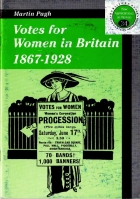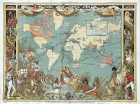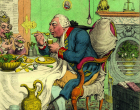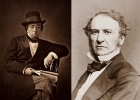Britain & Ireland 1745-1901
The relationship between Britain and Ireland is explored here across a number of articles. Particular themes assessing and exploring social reform on matters such as housing, industrial change and emerging civil rights are included here. Key individuals from the world of politics, science and women’s rights are also examined in detail.
Sort by:
Date (Newest first) | Title A-Z
Show:
All |
Articles |
Podcasts |
Multipage Articles
-

Using databases to explore the real depth in the data
ArticleClick to view -

Using eighteenth-century material culture to develop evidential thinking in Year 8
ArticleClick to view -

Votes for Women in Britain 1867-1928
ArticleClick to view -

Were industrial towns 'death-traps'? Year 9 learn to question generalisations and to challenge their preconceptions about the 'boring' 19th century
ArticleClick to view -

What Have Historians Been Arguing About... expanding the reach of the American Revolution
ArticleClick to view -

What Have Historians Been Arguing About... migration and empire
ArticleClick to view -

What Have Historians Been Arguing About... the consequences of the industrial revolution
ArticleClick to view -

What Have Historians Been Arguing About... the impact of the British Empire on Britain?
ArticleClick to view -

Why does anyone do anything? Attempts to improve agentive explanations with Year 12
ArticleClick to view -

Why history teachers should not be afraid to venture into the long eighteenth century
ArticleClick to view -

Women and Gender in the French Wars
PodcastClick to view -

Writing the history of nineteenth-century Europe
ArticleClick to view -

‘But they just sit there’: using objects as material culture with Year 8
ArticleClick to view

